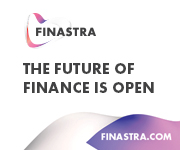|
This ABA Banking Journal newsletter is a free, twice-monthly supplement to the ABA Banking Journal magazine intended to help you stay on top of industry and policy news.
You can also stay abreast of banking news by visiting aba.com/BankingJournal, home to ABA Daily Newsbytes stories, digital exclusives, the ABA Banking Journal Podcast and more.
Bankers continued tightening credit for commercial real estate and certain consumer loans in the second quarter of 2017, while residential mortgage lending eased and commercial and industrial standards remained mostly unchanged, according to the Federal Reserve’s latest senior loan officer opinion survey. (ABA Banking Journal)
|
Younger Americans are hitting major financial milestones later in life. The share of 20-somethings married and living alone is less than half what it was five decades ago. All of which underscores the continued importance of institutions like Denver’s Young Americans Bank, which was created 30 years ago to help kids get a firm financial footing in life. (ABA Banking Journal)
|
One percent down on a new home loan? Zero down? Generous gifts of thousands of dollars from mortgage companies to help you swing the deal? If any of these sounds attractive to you, here’s a little sobering news: One of the country’s two largest mortgage sources is eliminating them. In a surprise move, giant investor Freddie Mac announced that it is ending purchases of certain low-down-payment loans that include lender contributions to the buyers’ down payments. (Washington Post)
|
Predicting a bear market can make you famous in financial market circles, but it’s certainly not an easy feat. Markets never follow the same script more than once, so trying to predict a peak in stocks is more about forecasting human emotions and sentiment than figuring out a precise formula or equation to follow. And people are unpredictable, to say the least. (Bloomberg View)
|
In the early 20th century, the traveling Hagenbeck-Wallace Circus, led by rewards-based animal training pioneer Carl Hagenbeck, was famous for its humane animal acts. Based in Peru, Indiana, it was also famous for its banking. (ABA Banking Journal)
|
Education Secretary Betsy DeVos scrapped a plan this week to overhaul the government’s system for collecting payments on $1.3 trillion in federal loans, canceling a contract procurement that would have handed management of nearly all aspects of the system over to a single vendor. (New York Times)
|
Almost two years after the Federal Reserve’s Faster Payments Task Force was formed, the results are finally in. Or, to be more precise, they’re out in a 64-page report released by the Task Force late last month. The report, which was based on input from around 300 players in the payments industry, outlined 10 key strategies to improve the faster payments system in the U.S., including opening the door to a larger role for the Fed in certain areas. (PYMTS.com)
|
The Federal Reserve said this week that it was seeking public comment on a proposal that would reduce the role bank boards play in the day-to-day regulatory obligations of their institutions. The U.S. central bank is proposing a series of changes in how it monitors banks, with an eye towards ensuring senior management at banks handles the bulk of regular regulatory issues, rather than the board of directors. (Reuters)
|
In a comment letter to the Treasury department, ABA provided extensive feedback on several Bank Secrecy Act and anti-money laundering regulations that could be eliminated, modified or streamlined to reduce the compliance burden on banks in response to an executive order issued by President Trump earlier this year. (ABA Banking Journal)
|
Testifying before the House Financial Services Committee last week, Treasury Secretary Steven Mnuchin outlined his recommendations for financial reform, including tailoring capital requirements, reducing regulatory overlap, remedying the Volcker Rule and making the Consumer Financial Protection Bureau more accountable.
|
The OCC officially opened the Volcker Rule up for review, soliciting public comment on revising and easing the regulations that aim to bar risky profit-seeking trading by banks with federally insured deposits. Keith Noreika, the acting U.S. comptroller of the currency, announced he was soliciting public comment, specifically input on how to better define what activities are prohibited by the Volcker Rule. (Reuters)
|
Last week, Sen. Mark Warner (D-Va.) introduced S.1642, an ABA-supported bipartisan bill clarifying that legally made bank loans may be resold and collected on by nonbank entities at the same interest rate. A similar measure was previously introduced in the House by Rep. Patrick McHenry (R-N.C.). The bill would re-establish a legal precedent that had been in place prior to the 2015 Madden v. Midland Funding case, which involved a lawsuit brought by a borrower whose loan was sold by a national bank to a debt buying company. (ABA Banking Journal)
|
In their decades of dominating the intersection of Wall Street and Washington, Goldman Sachs Group Inc. bankers have captured many of the world’s most powerful economic and financial positions. Gary Cohn, a longtime Goldman president and Donald Trump’s top economic adviser, is now within arm’s reach of the holy grail—chairman of the Federal Reserve. (Bloomberg)
|
Sep 11-13
Ponte Vedra Beach, FL
Sep 13-15
Washington, DC
Sep 18-20
Orlando, FL
Sep 24-26
New Orleans, LA
Sep 24-29
Atlanta, GA
Sep 24-29
Atlanta, GA
|
|








